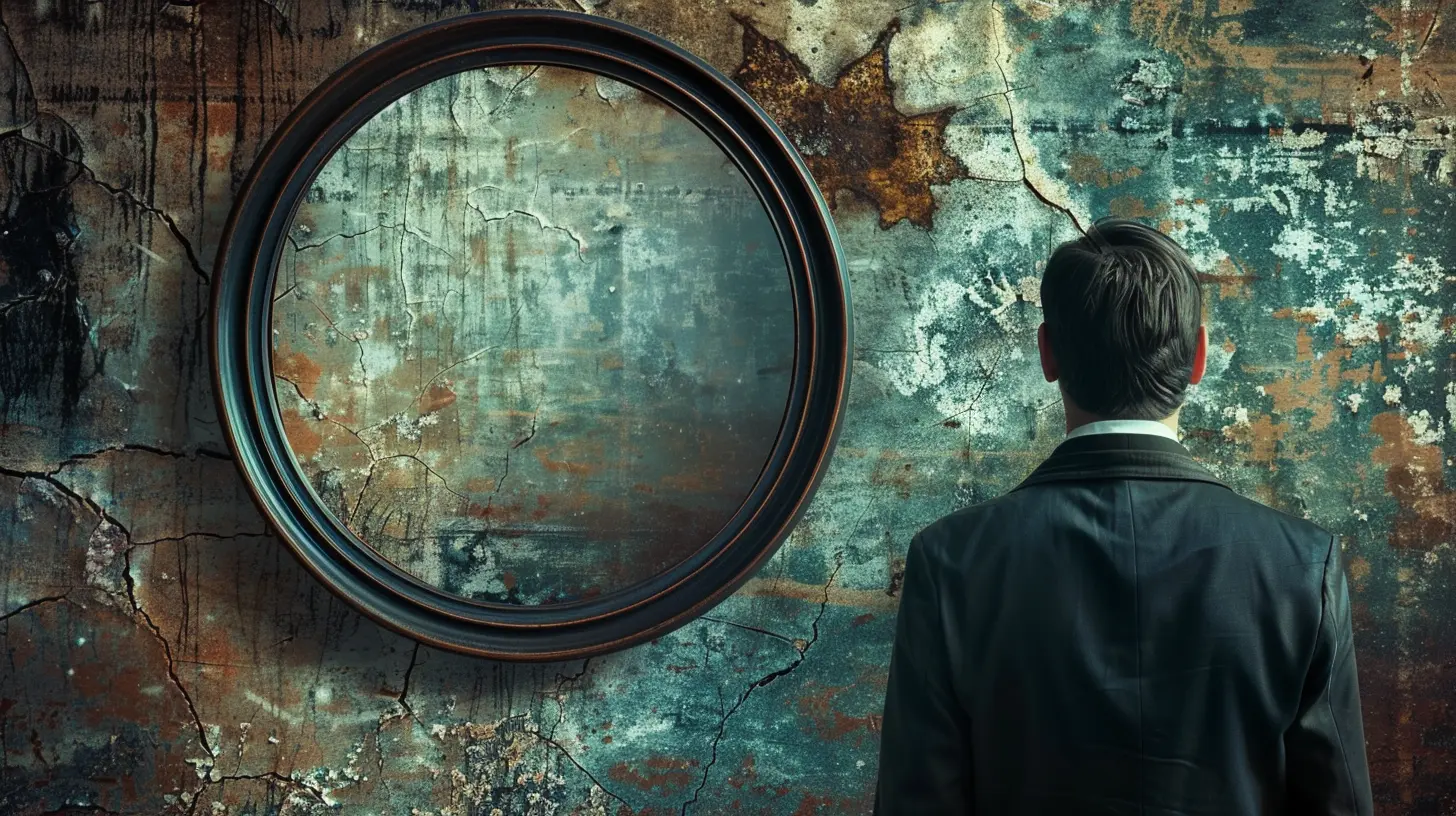How Reflection Enhances Problem-Solving Skills
6 September 2025
Ever felt like you’re stuck in a loop, solving the same kind of problems over and over again? Maybe the issue isn’t your ability to solve problems, but how you think about them. And that’s where reflection comes in. Reflection is not just a soft skill reserved for journaling fans or deep thinkers – it’s actually a secret weapon for boosting problem-solving skills.
In this article, we’re going to dive into how reflection can seriously up your game when it comes to solving problems – whether you’re a student tackling tricky subjects, a professional navigating decision-making at work, or just someone who wants to get better at life’s everyday challenges.
What Is Reflection, Really?
Let’s start by clearing one thing up – reflection isn’t about staring into the distance like you're in a movie montage. It’s about taking a step back to think critically about something you've done, experienced, or learned.Think about it like hitting “pause” on your mental remote. Instead of just reacting and moving on, you take a moment to rewind, play back the events, and figure out what worked, what didn’t, and how you can do better next time.
Why Problem-Solving Needs Reflection
You’d think that problem-solving is all about logic, quick thinking, and making decisions on the fly. And yes, those are part of the picture. But here's the catch: solving a problem quickly doesn’t always mean solving it well. If you don’t reflect, you’re more likely to repeat mistakes or miss out on better paths altogether.Reflection helps you:
- Understand the problem more deeply
- Learn from past efforts
- See patterns and connections
- Develop new strategies
- Build confidence in your decision-making
Basically, it transforms problem-solving from a shot in the dark to a guided mission.
How Reflection Works: A Simple Breakdown
Let’s break it down into three simple stages – this'll help you actually practice reflection, not just nod along with the idea.1. Pause and Observe
Ever tried to fix something only to make things worse because you rushed it? That’s what happens when we skip this step. Reflective thinking starts by pressing pause and just observing what’s going on. No judgment, no panic.Take a moment to ask:
- What exactly is the problem?
- What assumptions am I making?
- How do I feel about this?
This might sound small, but gaining clarity is a superpower.
2. Analyze and Question
Now that you've got a snapshot of the situation, dig a little deeper.Ask yourself:
- What worked in the past, and what didn’t?
- Are there any patterns here?
- What could I have done differently?
Imagine you’re a detective solving a mystery – the clues are all in your past experiences.
3. Apply and Improve
This is where things get exciting. You take what you’ve learned and actually apply it.Try something new. Adjust your strategy. Maybe it’s using a checklist next time, breaking the problem into smaller chunks, or just trusting your instincts more.
The key here is not just trying harder, but trying smarter.
Real-Life Situations Where Reflection Boosts Problem-Solving
Let’s get real – where does this actually apply? Honestly, everywhere. But here are a few scenarios where reflection can really shine.Students Handling Tough Subjects
You study hard, take the test, and still don’t get the grade you wanted. Frustrating, right? Instead of just repeating the same study routine next time, stop and reflect:- Which part of the test was most difficult?
- Did your study method match the way the material was tested?
- Were you focused or just going through the motions?
This reflective thinking can turn a C into an A by helping you study smarter, not harder.
Professionals Facing Workplace Challenges
Let’s say you pitched an idea at work and it didn’t land. Instead of brushing it off or blaming others, reflect:- How did I present the idea?
- What was the tone of the meeting like?
- Would visuals have helped? Was timing off?
These insights make your next pitch stronger—you’re not just reacting, you're evolving.
Everyday Life Decisions
Even something as simple as organizing your day or dealing with a conflict with a friend can benefit from reflection.Ask:
- Did I manage my time well today?
- Could I have handled that conversation better?
- What can I do differently tomorrow?
It’s like doing a quick “life audit” without needing an accountant.
Reflection & Critical Thinking: A Power Duo
Reflection and critical thinking are like peanut butter and jelly – great on their own but unbeatable together. When you reflect, you slow down your thought process, making room for deeper analysis.That means:
- Less jumping to conclusions
- More thoughtful decisions
- Stronger arguments and ideas
The more you reflect, the stronger your critical thinking muscles get. Over time, it becomes second nature.
What Makes Reflection So Effective?
You might be wondering, “Isn’t this just overthinking?” Nope. There’s a subtle but important difference.Overthinking traps you in endless “what-ifs.” Reflection, on the other hand, gives you direction. It’s intentional, structured, and goal-oriented.
Here’s why reflection really works:
- It rewires your brain: Neuroscience shows that thinking about your thinking (aka metacognition) strengthens neural pathways.
- It builds self-awareness: You start recognizing your strengths and blind spots.
- It increases adaptability: When things don’t go as planned, you don’t panic – you pivot.
Simple Reflection Techniques You Can Start Using Today
You don’t need a fancy journal or hours of alone time to reflect effectively. Here are a few easy ways to make it part of your daily life.1. The "What, So What, Now What?" Method
This is a classic and easy framework:- What? – Describe what happened.
- So what? – Explore why it matters.
- Now what? – Decide what to do next.
It’s short, sweet, and super powerful for both personal and academic use.
2. Journaling
Ok, maybe not for everyone – but writing down your thoughts can bring surprising clarity. Even five minutes a day can help you unpack complex situations.3. Mind Mapping
If you’re more of a visual thinker, mind maps are great. Just draw out the problem at the center and branch out your thoughts, observations, and ideas.4. Reflective Conversations
Sometimes, talking things through with a friend or mentor is better than going solo. Pick someone who listens well and ask them to help you think out loud.Making Reflection a Habit
The magic of reflection lies in doing it consistently. Make it a part of your daily or weekly routine. Set a “reflection reminder” on your phone. Or tie it to something you already do, like your morning coffee or nightly walk.The more you reflect, the easier it gets – and the sharper your problem-solving skills become.
Bonus: The Long-Term Benefits of Reflective Thinking
Still not convinced? Let’s look at some long-term impacts:- You make better decisions faster: Because you've trained your brain to recognize patterns.
- You become more empathetic: Reflecting on your actions helps you understand others better.
- You develop a growth mindset: Instead of fearing failure, you use it as fuel for improvement.
- You handle stress like a champ: Reflecting gives you perspective and clarity.
Reflection isn’t just about solving one problem – it’s about creating a mindset that makes you better equipped for any challenge life throws your way.
Conclusion: Reflect to Solve, Solve to Grow
Here's the thing: We’re all constantly solving problems – big or small. But not everyone takes the time to reflect. And that gives you an edge. Reflection turns your experiences into lessons. It gives you insight, confidence, and a strategy.So next time you hit a wall, don’t just push harder.
Pause. Reflect. Reroute.
You might just find a smarter way through.
all images in this post were generated using AI tools
Category:
Problem SolvingAuthor:

Anita Harmon
Discussion
rate this article
1 comments
Fleur Smith
Thank you for this insightful article! Reflecting on our experiences truly deepens our understanding and sharpens our problem-solving skills. It's a valuable reminder that taking the time to think critically can lead to more effective solutions. Keep up the great work!
September 24, 2025 at 10:46 AM

Anita Harmon
Thank you for your kind words! I'm glad you found the article helpful and appreciate your insight on the importance of reflection in problem-solving.


